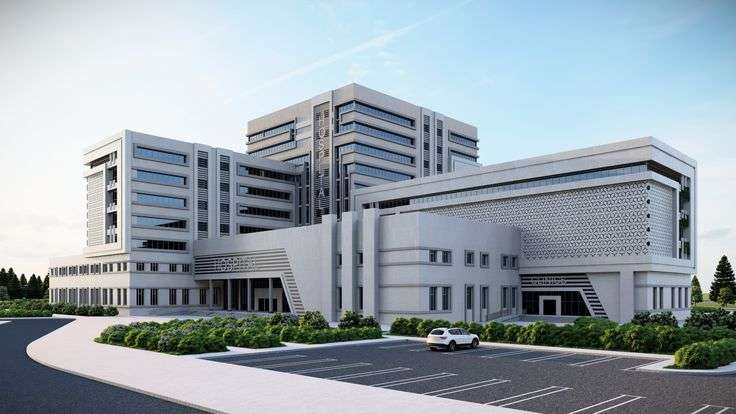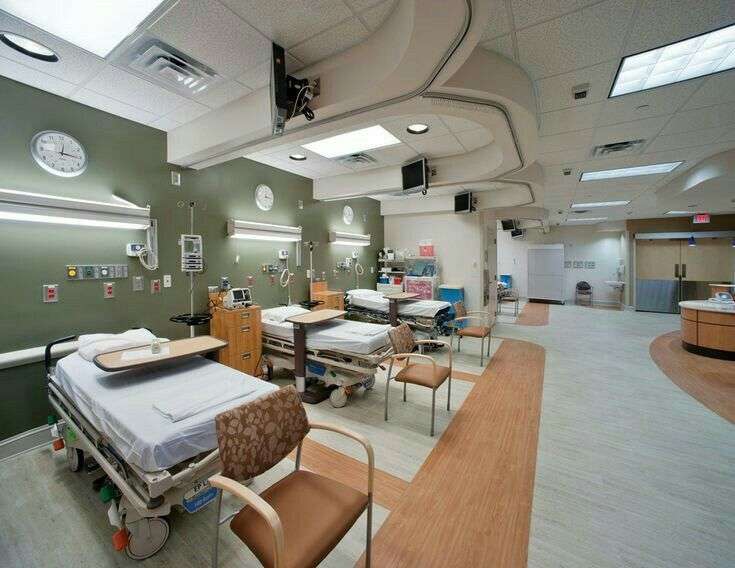
Building Healing Hopes: Hospital Architectural Design
May 17, 2022
How can a feasibility report save you from losses in hospital venture
May 18, 2022Healthcare licensing services: The need of the hour Setting up a healthcare institute, regardless of its size, involves navigating through the obstacle course of mandatory legal and regulatory regulations like licensing, accreditation and permits. These are compulsory assessments made by the government or other regulatory bodies.

Licensing
Medical Licensing is the formal recognition that a healthcare set-up has the capability in terms of infrastructure and expertise to operate. Licensing is compulsory. If any physician associated with a healthcare set-up does not have an updated license, legal action can be taken.
Credentialization
Credentialization validates that a doctor has the required qualification and experience to practice.
Certification
Certification recognizes the extra qualifications possessed by a practitioner. It gives a feel of credibility to your hospital. Certification is not a one-time affair; it involves periodic retests and upgradation.
Accreditation
Accreditation is a review of excellence. Healthcare practices can prove their capability to stringently adhere to benchmarks set by regulatory bodies by participating in an accreditation process. Accreditation enhances the credibility and trustworthiness of your healthcare organization and builds confidence in your customer base and your referring doctors. It enhances the corporate identity of your hospital or healthcare facility.

Common regulatory documents are
1.Land/ space permits
Even before the first brick is laid, you must take permission to use the site for a hospital construction from the local government. This is known as a Land permit. The land permit is issued after the regulating body inspects the site, the construction plan, and the likely environmental impact.
2. Water and Electricity Permits
The water and electricity requirement of a hospital is of Herculean proportions. Water and electricity permits from the local body and the electricity board are needed.
3. NABH and JCI
NABH {National Accreditation board for healthcare} and JCI are two National and International Quality Accreditations that every hospital and Healthcare facility must be compliant to.
NABH guarantees patient safety and quality of services and has been made mandatory by all Insurers.
In case the Hospital caters to Medical Travellers from abroad [Medical tourism} the JCI certification is essential.
4. NBC
The National Building code is a statutory requirement that has to be procured before construction.
5. AERB
Some healthcare organizations and Hospitals use X ray machines, radiation therapy and nuclear medicine. E.g., Oncology centres. These hospitals need to apply for AERB certificate that will assess and validate that the radiation used is not causing harm to health and to the environment.
6. PCPNDT
In India, female infanticide had become rampant due to sex selection in the prenatal stages. To stop this evil practice, the Pre Conception, and Prenatal Diagnostics Techniques (Prohibition of Sex Selection) Act was passed banning gender determination of the foetus. The PCBNDT certificate validates that your hospital does not carry out sex determination in the womb.
7. MTP
This license is especially needed in gynaec and nursing home set-ups and regulates medical termination of pregnancy.
8. Drug sale license
If the hospital has a chemist shop or pharmacy within its premises, it will require a drug sale license
9. Biomedical waste authorization certificate
Hospitals and healthcare units generate piles of biomedical wastes. Proper disposal of these wastes is mandatory otherwise they can contaminate the environment. To govern this, your hospital will have to procure a Biomedical waste authorization certificate from the sanitation department of the government.
10. Fire safety certificate
Fire is a hazard that can cause destruction to life and property. The fire safety certificate tests and validates your hospital’s fire safety protocol.
11. NOC
If you are starting your healthcare practice in a society, the NOC from the society managing committee is needed

As a healthcare professional, we understand that you are busy…there is a lot on your plate. Procuring your Healthcare Licenses and accreditations may seem like being stuck in a complicated web of tedious and time-consuming processes. You will need to be aware of a ton of government requirements, submit a pile of documents and fill a myriad number of forms. If the Medical licensing application process seems like a headache to you, outsource it to reliable healthcare consultants. They can guide you through this maze speedily and efficiently so that your invaluable time is saved for your patients.
If you are looking for a trustworthy healthcare licensing services firm, be sure to contact Hospertz, one of the leading Healthcare consultancy firms in India.
We are committed to lighten your load by streamlining the medical licensing application process. Our team will assure that you do not get burdened by the heaps of administrative, tedious legwork for these mandatory procedures and the whole process becomes fast and frustration-free for you . Additionally, you can benefit from our expertise and experience in the fields of hospital interior design hospital branding hospital equipment planning.
Blog has been written by Dr. Vishal Jadhav, a veteran in the field of hospital consultancy with a rich experience of more than 20 years and founder of the Healthcare Consultancy Firm, Hospertz.
Dr. Vishal Jadhav, Director
hospertz@gmail.com
+91 9867712705/ 9820833149



